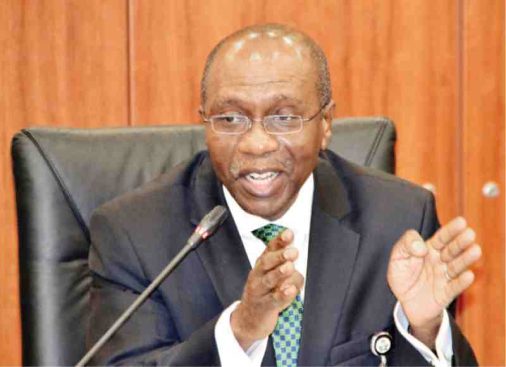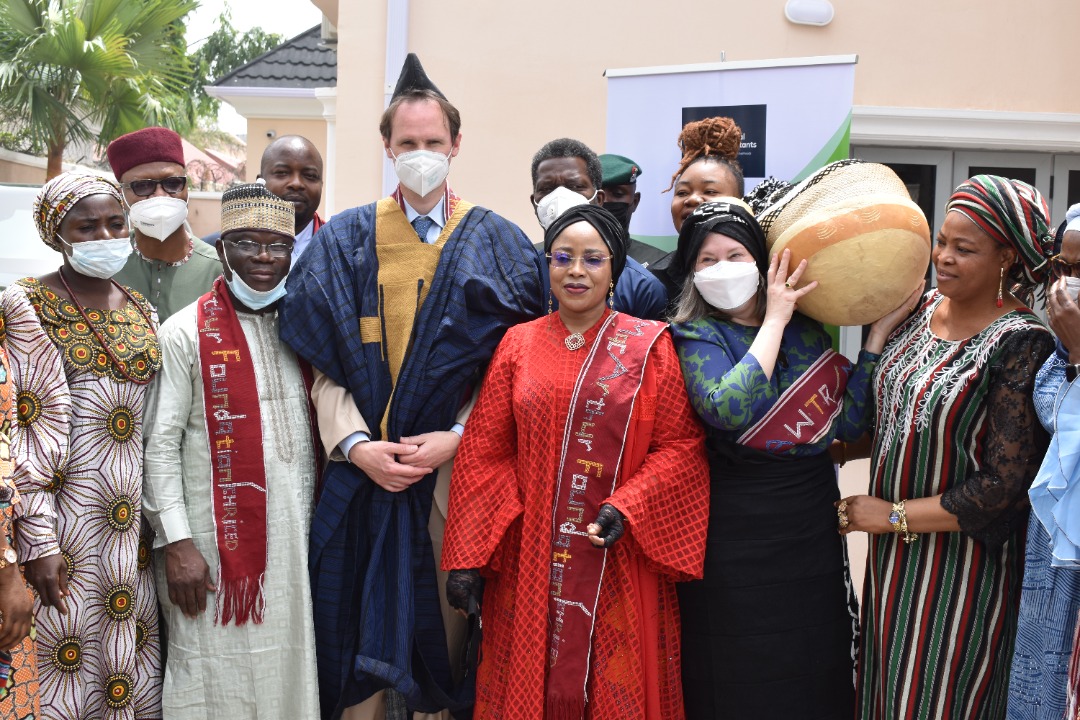Poverty and Buhari’s victory in 2019 presidential election

Was it by coincidence that President Muhammadu Buhari, the All Progressives Congress (APC) candidate in the February 23 presidential election, defeated his opponent Atiku Abubakar of the Peoples Democratic Party (PDP) as a result of poverty in Nigeria? Available data on the website of the National Bureau of Statistics shows that Buhari got overwhelming votes from nine of the 10 poorest states of Nigeria. The table below shows the poverty prevalence percentages in the 10 states.
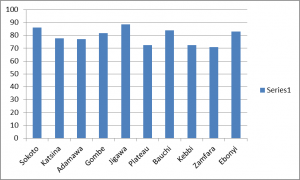
On what poverty is, the NBS says: “We define poverty based on the availability of certain basic needs such as food, clothing, shelter, sanitation facilities, pipe-borne water, education, good healthcare and access to information. Statistically, however, we determine poverty based on income and/or consumption, which assigns numbers to living standards and makes it easier to calculate poverty.”
As to the second part of the definition, poverty is measured by the number of persons who spend less than $2 (N720) a day. The Oxford Poverty and Human Development Initiative (OPHI), in a 2015 survey, indicated that Nigeria is actually a country of poor persons. It says between 68.0 per cent and 84.5 per cent of the population lives below the $2 per day benchmark. That is to say, well over 100 million Nigerians are poor.
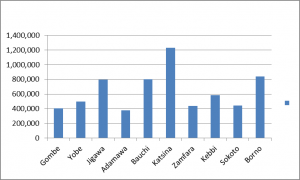
In the recently conducted presidential election, there seems to be correlation between poverty and electoral victory, though this is very silent. Going by NBS data, the ten poorest states in Nigeria is shown on the table below:
From the table, it is clear that Katsina State, with 77.6 per cent poverty rate voted the most for Buhari, with over one million votes. Perhaps, this could be explained away because Buhari hails from Katsina State. However, the fact that Buhari ran neck-and-neck with Atiku in the PDP candidate’s home state of Adamawa (another state living with the burden of 77.2 percent poverty), shows that it is not indigeneship alone that earned Buhari the huge votes. Also, Buhari received the second highest votes of 836,496 from Borno State. Though this North-East state is not among the top 10 poverty-stricken states, its poverty rate is significant. It was put by NBS at 60.6 percent, as at 2010, but the insurgency which has displaced over two million persons and paralysed economic activities may have raise the number of poor persons in Borno. Here is the total outlook of how states are in the survey of the percentage of the population that live above poverty line.
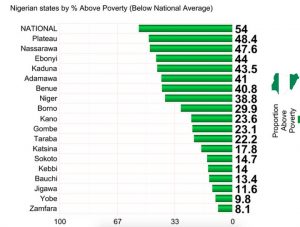
A UNDP survey in 2015 put the poverty rate in Borno at about 70.1 per cent.
In general, the North-West and North-East, the major strongholds of Buhari are the poorest regions in Nigeria. North-East has 76.8 per cent poverty prevalence, while North-West has 80.9 per cent poverty prevalence. This means that the poor, who lack basic daily needs, voted for Buhari.
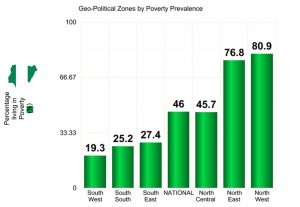
The Challenge:
The poverty-stricken parts of the country did not vote for Buhari because they love poverty. Rather, they did so because they felt that government would enact policies that would liberate them from the dark prison of poverty and want. In order to tackle poverty, it is imperative to know the causes of poverty in Nigeria. InfoguideNIGERIA.com has linked the following to poverty, not only in the North-East and North-West, but also all over the Nigeria. They include the following:
1. High cost of getting education
2. Corruption by government officials who squander public funds
3. Universities producing graduates without skills
4. Large scale unemployment
5. Overpopulation due to lack of family planning
6. Farming just for survival instead of using machines and fertilizers
7. Bush burning destroying the forest and using up the soil nutrients
8. Bad living conditions
9. High cost of accommodation due to scarcity of houses
10. Few modern medical facilities
11. High cost of living due to inflation
12. Preferences for foreign products instead of using local ones
13. A few industries producing below installed capacity.
Poverty reduction is not missing from the rhetoric of the Buhari administration, but government policies have not reduced poverty. In February 2018, at that convocation at the University of Abuja, Buhari spoke on poverty alleviation measures thus: “My government is working hard to reduce the unemployment rates through several programmes and initiatives including the N-power, agriculture, small and medium scale businesses, all of which are supported by government guaranteed loan scheme. I encourage you all to key into any of them for national growth and development. Government will devote attention to technical and vocational educational training to impact the necessary skills to our youths in a bid to provide the requisite, competent and reliant personnel that can sustain the nation’s economic activities for required socio-economic transformation.”
To many Nigerians, this chest-thumping has not translated to poverty reduction. One week after Buhari was declared winner of the 2019 elections, the majority of Nigerians who have set agenda for him are demanding for a more robust economy, an economy that depends absolutely on cheap imports from China cannot grow. Neither can cheap loans from China grow the economy.
For Buhari, the task in the next four years has been cut out.
The Insight Report
Nigeria Coverage

